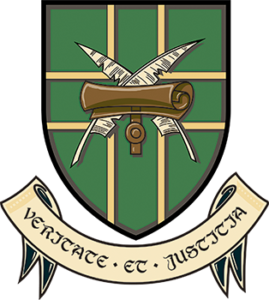What is an Apostille
The Apostille procedure applies in lieu of Legalisation between all those many countries that have signed and ratified or acceded to the Hague Convention of 5 October 1961. Ireland ratified the Convention in 1999. Other countries in which the Apostille procedure applies may be checked on the Hague Convention website, where a list of countries adhering to the Apostille system abolishing the need for legalisation, and also those countries not Hague Convention Countries Adhering or likely also on the Department of Foreign Affairs webpage.
https://www.hcch.net/en/instruments/conventions/specialised-sections/apostille
Legalisation
Legalisation (in some countries spelled ‘Legalization’) is an internationally recognised procedure for certifying the authenticity of official signatures and/or official seal applied to a public document. It operates by means of an unbroken chain of verifying signatures commencing with that of the first signatory to the document and ending with the signature of the diplomatic or consular representative of the state in which the document is to produced and acted upon. The legalisation procedure usually commences with the attestation by a Notary Public of the signature of a person to a formal document e.g. a Power of Attorney. The Notary Public having subscribed his or her name and affixed his or her official seal to the document by way of notarial act arranges for the document to be produced to the Registrar of the Supreme Court for the purpose of having the Notary’s signature and official seal verified. The document is then produced at the Consular Section of the Department of Foreign Affairs in Dublin for the purpose of having the signature of the Supreme Court Registrar verified and finally it is produced to the diplomatic or consular representative in Dublin (or London) of the foreign country in which it is intended the document shall be produced for the purpose of having the Irish Consular Officer’s signature legalised. When all the foregoing steps have been completed, the document is said to have been legalised. The Apostille is sometimes called a “one stop shop legalization”. Other countries in which the Apostille procedure applies may be checked on the Hague Convention website, where a list of countries adhering to the Apostille system abolishing the need for legalisation, and also those countries not Hague Convention Countries Adhering or likely also on the Department of Foreign Affairs webpage.
How to Apply for an Apostille / Legalisation
The Authentications/Apostilles Public Offices in Dublin restarted their walk-in service from their office at 42-47 Lower Mount Street.
They are open on Monday, Tuesday, Thursday, and Fridays. Their opening hours are 9.30am – 12.30pm, and 2.30pm – 3.30pm.
The Authentications Unit in Cork is open on Tuesdays and Thursdays only, between 9.30am – 12.30pm.
https://www.dfa.ie/travel/our-services/authenticating-documents/
Department of Foreign Affairs (“DFA”) will continue to authenticate/apostille documents received by registered post. Documents should be posted to:
Authentication Section,
Consular Division,
Department of Foreign Affairs and Trade,
80 St. Stephen’s Green,
Dublin D02 VY53
It is recommended that you submit the documents by registered post. Documents will be returned to you by registered post. Please include a brief covering letter providing the following information:
- Your name
- Return address
- Telephone number
- The name of the country the document(s) are for use in the appropriate fee (see below)
- Payment can be made Irish bank draft or postal order or DFA will contact you at the number provided for payment by credit/debit card.
All enquiries regarding the service and the public office in Dublin can be made by telephone 01 408 2174 (mornings only on each Monday, Wednesday and Friday) or e-mail authentications@dfa.ie. Emergency appointments may be accommodated but this is a matter for the DFA
An Apostille is a certificate issued by the Department of Foreign Affairs verifying the genuineness of the signature and/or seal of a public officer e.g. a Notary Public, on a public document and the capacity in which he or she has acted. It is sometimes referred to as a ‘fast-track’ version of “legalization” that applied in Ireland until 1999, and still does in a small and decreasing number of other countries. The Apostille now applies for these purposes as between Ireland and the great bulk of other jurisdictions.
The Apostille certificate is attached to the public document required to be apostilled. It is obtained by presenting the document at the Department of Foreign Affairs,
- Dublin is now at Knockmaun House, 42-47, Lower Mount Street, Dublin 2, open Monday to Friday 9:30 to 12:30 and 2.30 to 4.00 with telephone number Tel: + 353 1 4082174
- Cork at 1A South Mall, Cork,
- website address is: https://www.dfa.ie/travel/our-services/authenticating-documents/
The appropriate consular fee is normally €40.00 per certificate.

